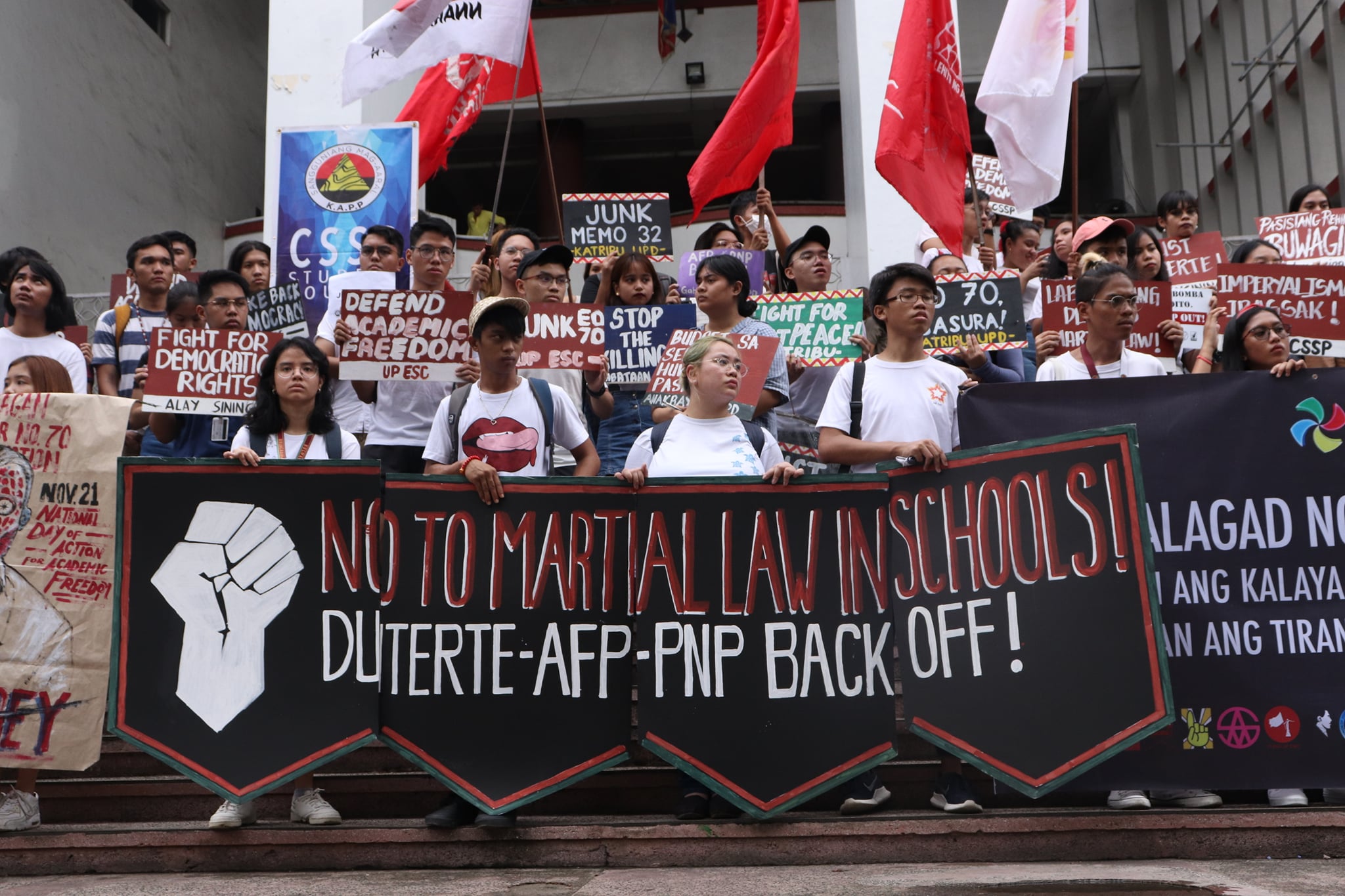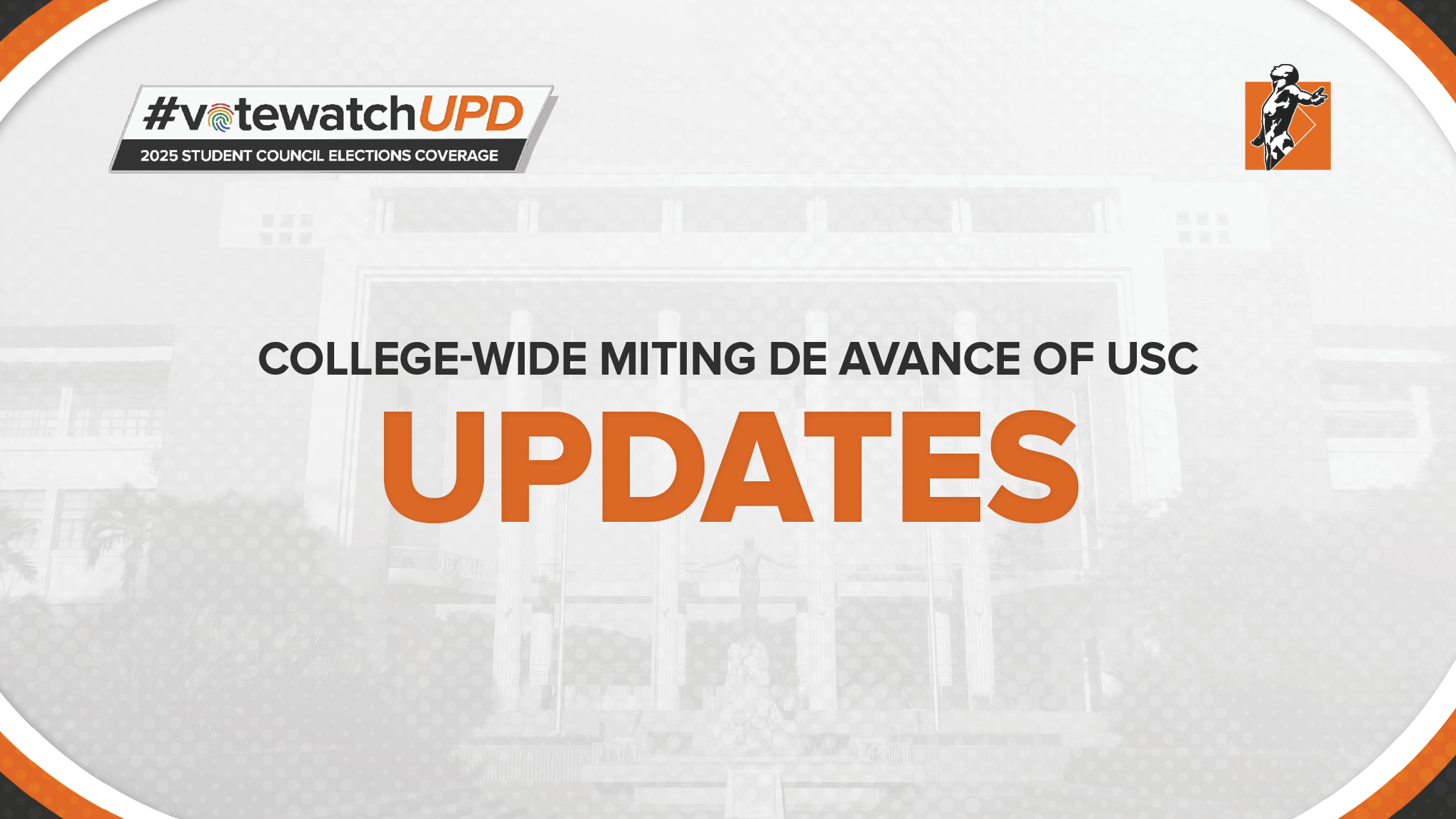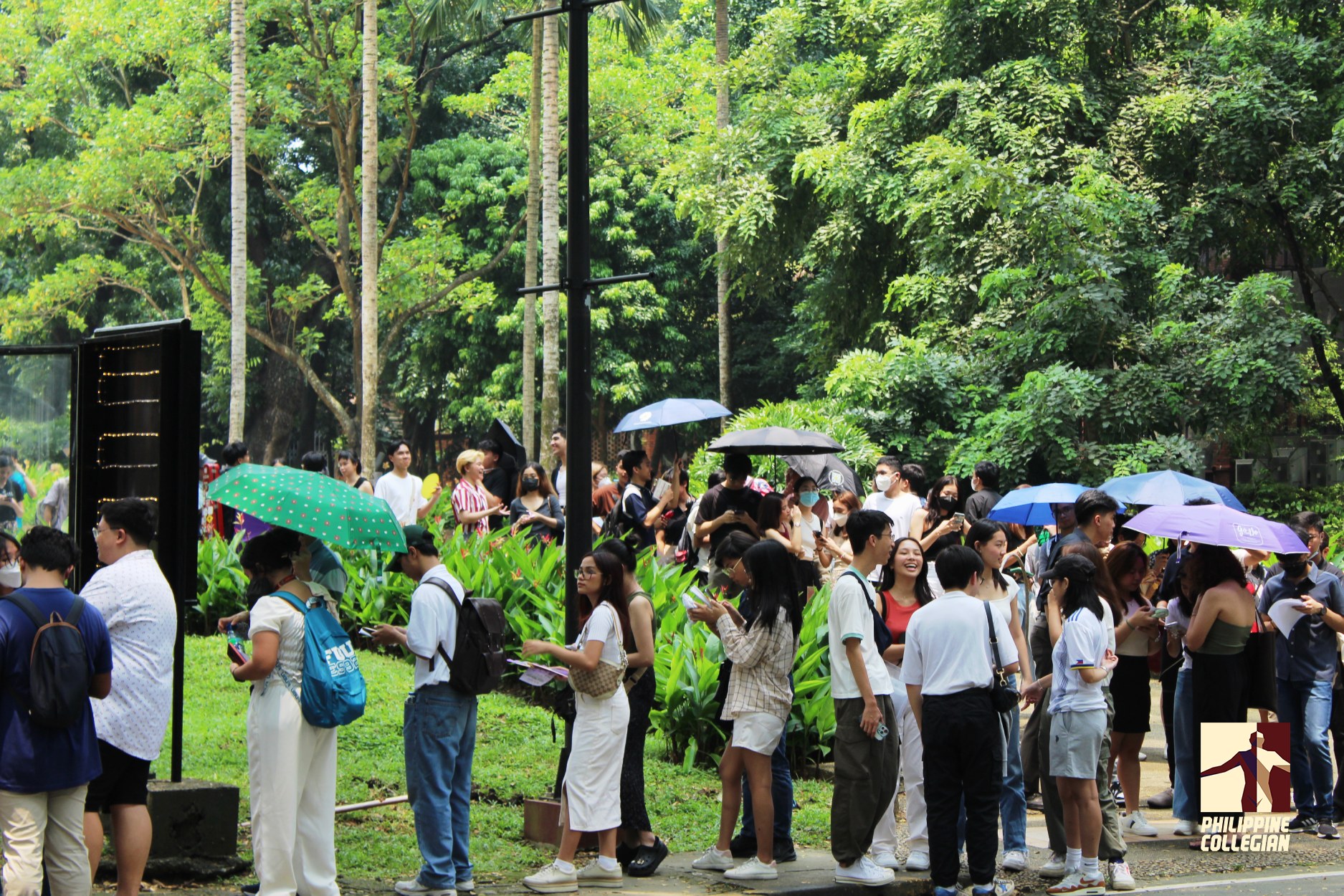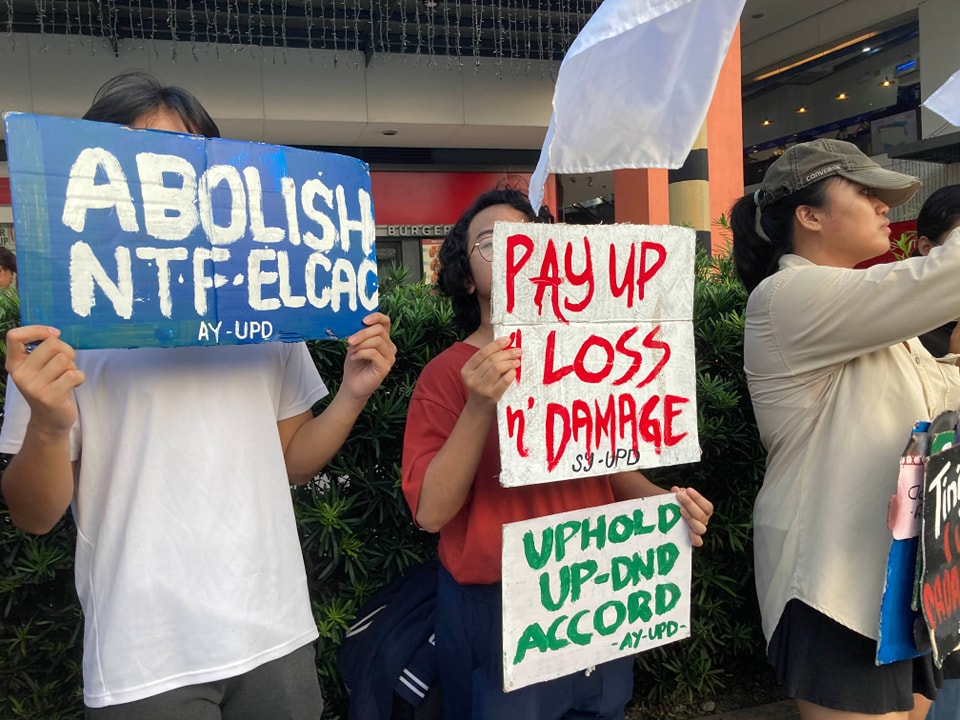The Makabayan bloc has filed a resolution last October 12 to investigate the removal of books that were deemed "subversive" and "mentally unhealthy" for students from three state universities and colleges (SUCs) in the country.
Authored by the six representatives from Bayan Muna, Gabriela, ACT Teachers, and Kabataan Partylists, House Resolution 2290 aims to look into the "dubious removal of books and other reading materials from state university libraries for supposed subversive content."
The government, through its Regional Task Force to End Local Communist Armed Conflict (RTF-ELCAC), told SUC administrations last month to turn over books authored by the National Democratic Front of the Philippines (NDFP). The government has tagged the NDFP as a terrorist organization, per the controversial Anti-Terror Law.
"The removal of these books and materials from the libraries of the SUCs is a clear violation of the people's right to academic freedom and the government's attempt to suppress critical thinking amidst the reign of tyranny in our country today," the resolution stated.
Kalinga State University (KSU), Isabela State University (ISU), and Aklan State University (ASU) were the first SUCs that surrendered the controversial books that mainly discuss the peace negotiations between the Government of the Republic of the Philippines and the NDFP.
On September 1, a group of police and soldiers forced a KSU library to remove materials that were deemed "subversive." Three weeks later, ISU and ASU voluntarily surrendered similar materials to the National Intelligence Coordinating Agency and Aklan Police Provincial Office, in compliance with the police and military's order.
But for Karlo Mongaya, a UP Diliman faculty member and member of the teachers' group CONTEND UP, the recent book purge is an attack on academic freedom, adding that such a move is an assault on freedom of thought and expression.
"Much like red-tagging of students, faculty, and academic employees and the unilateral termination of the UP-DND accord, the targeting of libraries not only threatens the physical safety of members of academia but also critical thinking and free discourse in academic spaces," Mongaya told the Collegian.
Among the materials removed from three SUCs were the following:
- GRP-NDFP Agreement on Respect for Human Rights and International Humanitarian Law
- GRP-NDFP Peace Negotiations Major Arguments and Joint Statements for September 1, 1980-June 2018
- NDF Adherence to the International Humanitarian Law: Letters to the International Committee of the Red Cross and the UN Secretary General
- NDFP Declaration and Program of Action for the Rights, Protection, and Welfare of Children
- Continuing the Struggle for National and Social Liberation and similar books by Communist Party of the Philippines founder Jose Maria Sison.
The said materials contain resources for research and scholarship on social movements and the communist armed conflict in the country.
Mongaya lamented that the book removal might sow fear in the academe as some books and materials were "criminalized" by the state amid a general climate of red-tagging and killings of activists.
But members of the academic community are standing up against the book removal. Earlier this month, they started a petition calling to stop the book purge and protect academic freedom and freedom of expression.
"The assault on libraries has the effect of sowing fear among students, teachers, and communities of scholars, who are thereby discouraged from freely discussing particular ideas and expressing dissent out of fear of persecution," said Mongaya, who also is also a member of the Academics Unite for Democracy and Human Rights, the group that started the online petition.
The UP School of Library and Information Studies also opposed the materials disposal from libraries saying that libraries support democracy by providing the readers materials that contain alternative points of view.
"If we are truly free and democratic, we allow our citizens to have free and open access to information for them to critically think about their decisions and fully participate in democratic processes and uphold human rights and social justice all of which are embedded in our constitution," read part of the statement.
Yet the RTF-ELCAC signifies that it will continue pulling out the so-called subversive books as part of its partnership with various SUCs. Meanwhile, the Makabayan bloc’s resolution is expected to be tackled next month at the earliest as Congress is currently in recess.
"During these dark times when tyranny reigns, we need books that provide a window into the socio-economic roots of armed conflict and the necessity for the respect of human rights and international humanitarian law," Mongaya said. "We need more Filipinos who are advocates of peace and social justice rather than close-minded chauvinists and war mongers." ●





